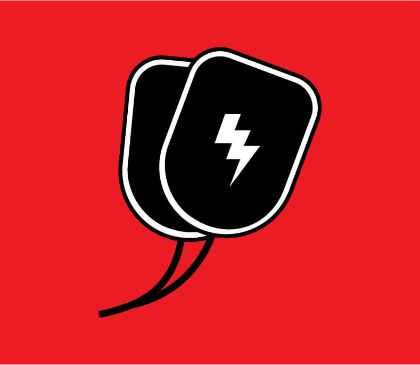How Much Do AEDs Typically Cost?
- Feb 11, 2019

What’s the Total Cost of an Automated External Defibrillator (AED)?
Whether you’re considering an AED for home use or you’re implementing an office-wide AED program, cost is understandably a big concern. Features and costs vary from device to device, but a new AED can cost anywhere from $1,275 to up to $2,875 for a professional-rated device.
Let’s just put this out there, though: although costly, AEDs also save lives. More than 350,000 people die each year from out-of-hospital-cardiac arrest. Let’s make a dent in these numbers!
AEDs automatically diagnose and respond to life-threatening heart rhythms. The shock delivered by an AED can stop potentially fatal arrhythmias and allow normal heart rhythms to resume after sudden cardiac arrest (SCA).
The U.S. Department of Health and Human Services recommends that federal agencies, public entities, and large businesses or corporations purchase a portable AED to keep on-site. In 2004, the U.S. Food and Drug Administration approved the Philips HeartStart OnSite for home use.
Most AEDs provide easy-to-follow audio and visual instructions so that untrained bystanders can quickly offer assistance to an individual suffering from cardiac arrest. Some AEDs advise the user when they should administer the shock, while other AEDs automatically deliver a shock if the heart is arrhythmic. Many AEDs also offer step-by-step cardio-pulmonary resuscitation (CPR) instruction and real-time CPR feedback.
Additional AED Costs
Most AEDs come with a factory warranty, pads, and batteries. To learn more about what’s included with an AED, check out What’s Included With a New AED and What AED is Right for Your Business. To keep costs manageable and to ensure that your AED remains in compliance, we highly recommend preventative maintenance and LifeShield compliance management.
Many AEDs come with adult pads only. If your AED is likely to be used on infants and children, you may want to consider purchasing a set of pediatric pads or purchasing an AED with pediatric settings.
If you’re purchasing an AED, make sure your family members and coworkers can confidently use the device. We simply can’t recommend AED, First Aid, and CPR training enough — see 10 Reasons Why You Should Learn CPR. While you’re at it, you may think about stocking up on Stop the Bleed Kits.
Funding Your AED Program
Here at Cardio Partners, we’re doing our best to make AEDs affordable to those who need them. If you’re interested in fundraising to support your AED purchase, visit our Resources Page and download our free Grant Guide or read our post, Finding Funding for your AED Program.
For more information about purchasing a new AED or a recertified AED, visit AED.com or call Cardio Partners at 800-544-0004. We also welcome your emails; you can reach us at customerservice@cardiopartners.com.
DISCLAIMER: Information and resources found on the cardiopartners.com and aed.com websites/blogs is intended to educate, inform, and motivate readers to make their health and wellness decisions after consulting with their healthcare provider. The authors are not healthcare providers. NO information on this site should be used to diagnose, treat, prevent, or cure any disease or condition.









 CALL US:
CALL US: